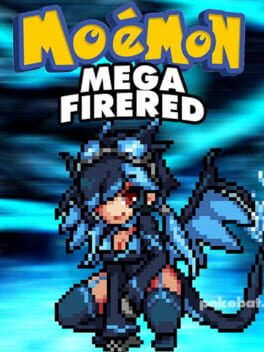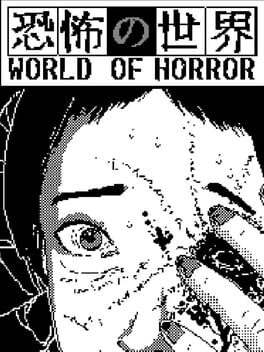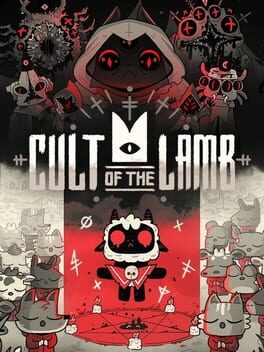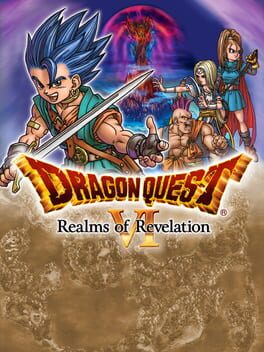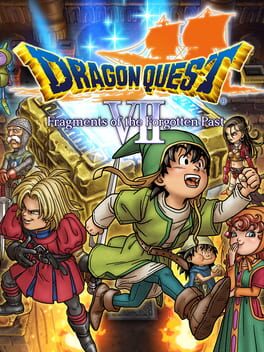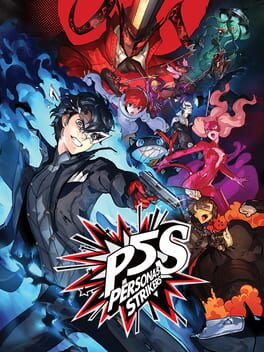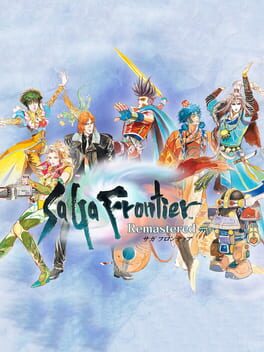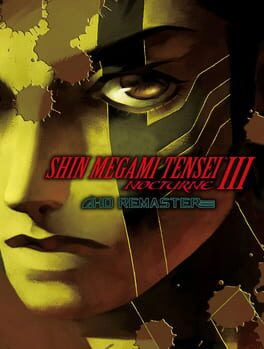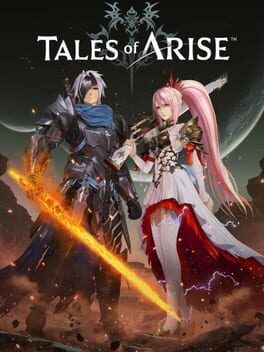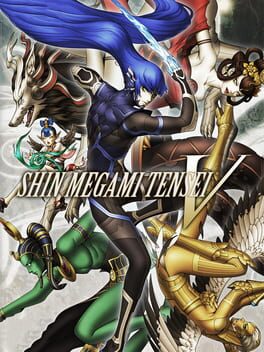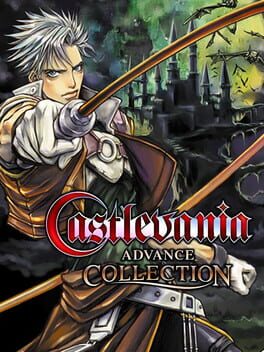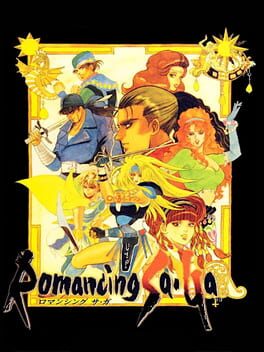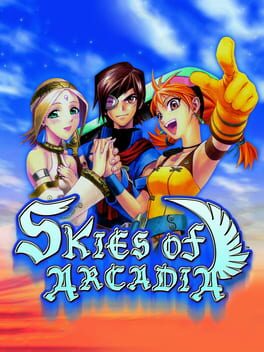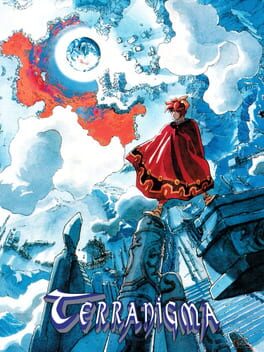hail_freyr
2017
2020
Absolutely love the game, but did encounter a bug that deleted all my save data so it definitely still needs some updating haha. Will look forward to returning to it down the line when it's patched up and maybe has more of the unfinished content done, will almost certainly bump my score up then too.
2022
Extremely fun and addictive gameplay, balanced between the two modes. It's ultimately not a very difficult game, which made it nice to unwind with, even if it felt like there was a lot to manage at first. Adorable art and music. It did crash on me several times during my playthrough (which caused me to put it away a little earlier than I might've otherwise) so hopefully there will be some fixes for it down the line.
Unfortunately a corrupt save has set me back several hours on this one and I just don't want to do it again. Not a bad game in all, but feels like a huge step back after V, which has probably the most ambitious and fleshed out plot and cast of all the games up to this point (and even comparable to the major modern installments in the franchise). VI feels empty in many ways by comparison; long stretches with no forward momentum on the thin main plot, far less party chat dialogue, and only a couple characters that feel like more than very simple tropes.
The most noteworthy element of the game is the updated class system, which takes longer than expected to get access too, but does offer lots of customization, and massive injection of abilities over all the previous installments. This does kind of encourage a lot of grinding, of which it already feels like the game has a fair share of in a series that is known for it, but the freedom and potential for super versatile characters is neat nonetheless.
Visually the game is pretty in line with the previous DS remasters, though the quality of sprites feels closer to V's improvements over IV's. However, whether it's partly in the choice of remastering, or just a matter of the songs themselves, I found the score to be one of the least effective in the franchise. It felt like there was far less variety, and that many of the songs had a hollow vibe, like sparse sounds in empty spaces. It's kind of uncanny, and combined with my issues with the plot, really sealed this vaguely unfinished feeling I took from the game as a whole. I can only say I found it marginally more enjoyable (or perhaps just less frustrating) than IV.
The most noteworthy element of the game is the updated class system, which takes longer than expected to get access too, but does offer lots of customization, and massive injection of abilities over all the previous installments. This does kind of encourage a lot of grinding, of which it already feels like the game has a fair share of in a series that is known for it, but the freedom and potential for super versatile characters is neat nonetheless.
Visually the game is pretty in line with the previous DS remasters, though the quality of sprites feels closer to V's improvements over IV's. However, whether it's partly in the choice of remastering, or just a matter of the songs themselves, I found the score to be one of the least effective in the franchise. It felt like there was far less variety, and that many of the songs had a hollow vibe, like sparse sounds in empty spaces. It's kind of uncanny, and combined with my issues with the plot, really sealed this vaguely unfinished feeling I took from the game as a whole. I can only say I found it marginally more enjoyable (or perhaps just less frustrating) than IV.
2006
Consistent with its predecessor, Mother 3 has a charmingly quirky aesthetic that juggles offbeat humor with abject tragedy rather well. It remains thematically heavy, but does develop a more focused personal narrative. That said, while some small tweaks were made to the gameplay, it remains largely the same, which isn't terribly exciting for a game over a decade in the making. But again, the gameplay is perhaps second chair to the message.
The last mainline game I needed to play (though IX remains the last I need to beat, technically, or at least try to beat considering that I'm dropping this one). I'd put this one off and been wary about it because of its notorious reputation as the longest and slowest game in the series, and now that I've played it, that reputation is well earned, and also perhaps even an understatement.
This is a tough one to rate because technically it really isn't that much worse than VI or IV, which are flawed games and previously sat at the bottom of my ranking, but have some positives in their favor. This game is just...really bland to me. The episodic design is unique for the series, but I didn't find most of the stories that compelling, and honestly even found some of the recurring themes to be a little off putting. Otherwise, it has all the slowness and flatness that I found troubling in VI, but drawn out even further. It's a game that's roughly as middling, but thrice the length, and that's just hard to justify.
This is a tough one to rate because technically it really isn't that much worse than VI or IV, which are flawed games and previously sat at the bottom of my ranking, but have some positives in their favor. This game is just...really bland to me. The episodic design is unique for the series, but I didn't find most of the stories that compelling, and honestly even found some of the recurring themes to be a little off putting. Otherwise, it has all the slowness and flatness that I found troubling in VI, but drawn out even further. It's a game that's roughly as middling, but thrice the length, and that's just hard to justify.
2020
The biggest compliment I can pay this game is that it surprised me how much it felt like an extension of the original. While the combat mechanics are a stylistic departure, great lengths went to incorporating the mechanics that were familiar into the new system in fun and satisfying ways, while the navigation, cutscenes, writing, soundtrack, and everything else felt like a perfect match. Nothing about it felt cheap, or like a knock off or cash grab the way that spin off games often do.
There are some elements of the story structure that are a little more simplistic, while other elements are also streamlined (like the calendar system), likely to keep the game from running too long or becoming a massive undertaking of development, but the new story and characters are very satisfying and compelling, and the game play, while initially a little overwhelming, eventually comes together into a recognizable, rewarding pattern.
I did a thorough run of the base game, and then dipped my toes into the unlockable Merciless difficulty. Sadly that was a bit much for me; it ramps up to an extreme in a way that felt too punishing to be fun, and is probably the one real detractor for me overall. I'm sure for many the challenge could be rewarding, it's not strictly bad design or anything like that, it just isn't my scene. Otherwise, if you enjoyed Persona 5, I would wholeheartedly recommend this.
There are some elements of the story structure that are a little more simplistic, while other elements are also streamlined (like the calendar system), likely to keep the game from running too long or becoming a massive undertaking of development, but the new story and characters are very satisfying and compelling, and the game play, while initially a little overwhelming, eventually comes together into a recognizable, rewarding pattern.
I did a thorough run of the base game, and then dipped my toes into the unlockable Merciless difficulty. Sadly that was a bit much for me; it ramps up to an extreme in a way that felt too punishing to be fun, and is probably the one real detractor for me overall. I'm sure for many the challenge could be rewarding, it's not strictly bad design or anything like that, it just isn't my scene. Otherwise, if you enjoyed Persona 5, I would wholeheartedly recommend this.
Beautifully remastered, with tons of restored content and quality of life updates to modernize the game, but with the charming benefit of a classic option that disables all this for users who just want the pure PS1 experience. A few minor quirks in the new translation are about the only things I can say negative to the remaster, and they're trivial. Perfect for new players and returning fans alike.
Man I've had some bad luck lately, but the game crashed on me IN THE SAVE ROOM after an especially grueling dungeon and boss gauntlet. So I lost a lot of time and progress and that just kinda set me off of the game for a while.
That said, I've been enjoying the game largely. Love the aesthetic, the varied and eclectic OST, and the combat is pretty much what you expect after playing a dozen other SMT games. A little bit simpler than some, being an older game in the series, but it offers enough complexity for the boss fights to feel engaging. Random encounters are a bit more "auto pilot" honestly though, and the encounter rate is kind of high, so it can get a little tedious.
The lack of a party, and the obtuse nature of the narrative also makes the world feel a little empty, but it's clearly set up for multiple endings, so it's not completely thin or without replay value. I'm sure I'll come back and finish this at some point; not likely going to be one of my favorites of the franchise, but it's a solid entry from what I experienced.
That said, I've been enjoying the game largely. Love the aesthetic, the varied and eclectic OST, and the combat is pretty much what you expect after playing a dozen other SMT games. A little bit simpler than some, being an older game in the series, but it offers enough complexity for the boss fights to feel engaging. Random encounters are a bit more "auto pilot" honestly though, and the encounter rate is kind of high, so it can get a little tedious.
The lack of a party, and the obtuse nature of the narrative also makes the world feel a little empty, but it's clearly set up for multiple endings, so it's not completely thin or without replay value. I'm sure I'll come back and finish this at some point; not likely going to be one of my favorites of the franchise, but it's a solid entry from what I experienced.
2021
As far as the story and character tropes go, this is pretty meat and potatoes. Predictable, doesn't reinvent the wheel, but everything is well executed and satisfying to see through.
The sheer amount of optional skits and party dialogue, plus a combat system that incorporates all characters, regardless of them being in your reserves, means that you get a great sense of camaraderie and growth in the group, which is a big plus. The combat itself is easy to pick up, with tons of customization and options. It can get a little messy at times, but nothing in the game is too difficult that you feel overly punished for taking hits.
If you just want a good old fashioned feeling JRPG, in line with classic entries in the series, or the likes of series like Star Ocean, this will more than satisfy the itch. I achieved 100% completion at around 72 hours, which is plentiful without feeling overstuffed or tedious. Well worth picking up.
The sheer amount of optional skits and party dialogue, plus a combat system that incorporates all characters, regardless of them being in your reserves, means that you get a great sense of camaraderie and growth in the group, which is a big plus. The combat itself is easy to pick up, with tons of customization and options. It can get a little messy at times, but nothing in the game is too difficult that you feel overly punished for taking hits.
If you just want a good old fashioned feeling JRPG, in line with classic entries in the series, or the likes of series like Star Ocean, this will more than satisfy the itch. I achieved 100% completion at around 72 hours, which is plentiful without feeling overstuffed or tedious. Well worth picking up.
2021
If it ain't broke, don't fix it. There are plenty of quality of life clean ups that made this feel like a smoother, more modern experience over Nocturne, but nothing that took away from the tactical feeling of the combat, or the general difficulty outside a couple moments (I can't say there are many spikes like Nocturne is known for).
Loved the visual aesthetic, the landscapes and glimmering particles, the surreal ambient score. A lot of very chill moments. The character design is strong as well, and I liked how some characters developed in surprising ways. The demon recruitment dialogue is full of gems too, it can be quite charming and humorous.
That said, the overall writing isn't super fleshed out, there are fun ideas and side quests that pose moral quandaries that have no defined answers, which is cool. But many characters vanish in the background and you don't really feel like you're charting a path towards your selected ending until the very last area of the game. I'd have liked to see more depth to the scenario and characters overall.
Loved the visual aesthetic, the landscapes and glimmering particles, the surreal ambient score. A lot of very chill moments. The character design is strong as well, and I liked how some characters developed in surprising ways. The demon recruitment dialogue is full of gems too, it can be quite charming and humorous.
That said, the overall writing isn't super fleshed out, there are fun ideas and side quests that pose moral quandaries that have no defined answers, which is cool. But many characters vanish in the background and you don't really feel like you're charting a path towards your selected ending until the very last area of the game. I'd have liked to see more depth to the scenario and characters overall.
Offers a reasonable amount of small bonuses and ease of access features to feel fresh and less punishing than the games were on the original hardware, without losing anything in the process. Each of the three games is fun, and unique from each other, taking influence from various other games in the larger franchise. Any of three could be a standout to someone, based on what aspects they like or don't in the series. Harmony of Dissonance remains my favorite, and it was a delight to revisit it without having to dust off my DS.
1992
Admirable for its open ended structure and deep mechanics. I liked the main character sprite work, and Ito's score has some great moments. But this was a painfully obtuse experience overall, with little discernible direction. The battle counter timing system means locking yourself out of certain events (even potentially soft locking the game's ending), which really made me feel I'd regrettably wasted my time getting lost; despite the game kind of being designed for it.
I think by and large it's just mired in the amount of systems as well; there are so many little things going on, from the large party size and positioning system (which is just as often randomized in battle anyway, despite whatever game plan you thought you had), to the various weapon and spell skill systems you need to manage (whose resource pools are semi-hidden). It was a hell of a thing to pack so much into a game in this era, and I can see where it could be good for experimenting and testing the boundaries of, but I don't have the patience for it the way I might've as a kid, when game options were far more limited.
I think by and large it's just mired in the amount of systems as well; there are so many little things going on, from the large party size and positioning system (which is just as often randomized in battle anyway, despite whatever game plan you thought you had), to the various weapon and spell skill systems you need to manage (whose resource pools are semi-hidden). It was a hell of a thing to pack so much into a game in this era, and I can see where it could be good for experimenting and testing the boundaries of, but I don't have the patience for it the way I might've as a kid, when game options were far more limited.
2000
Once upon a time I'd have had more patience for this. It has a cute aesthetic, and the airship-centric world building is interesting. But wow is it slooooooowwww. Walking around, combat, airship combat especially. Everything takes forever, and from my experience the mechanics and story were mostly pretty standard fare. Not bad, but far from engaging enough for me to be interested in enduring the pacing. I can tell it's a fine game overall, so I won't give it a bad rating, but I'm just not that fond of it.
1995
Very conflicted feelings about this one. Love the general art direction, and the weird, high concept plot line that sees you guiding the evolution of an Earth and Humankind that is familiar to our own. The first leg of the game was a lot of fun and unique, but as the game goes on and it gets a little sillier and more typical to other JRPGs. I genuinely disliked the majority of bosses as well, so many of them are outright tedious slogs, where they should be exciting and memorable. So it came out very uneven for me, but it has a lot of unique and creative elements that make it worth the look.
